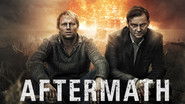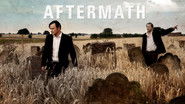Diagonaldi
Very well executed
Fairaher
The film makes a home in your brain and the only cure is to see it again.
SeeQuant
Blending excellent reporting and strong storytelling, this is a disturbing film truly stranger than fiction
Rio Hayward
All of these films share one commonality, that being a kind of emotional center that humanizes a cast of monsters.
Chris Blachewicz
On its own, and to people unfamiliar with Jedwabne's past, this might seem like a decent movie. But once you get to know what really happened and then watch the movie, you're only left with bewilderment, or disgust.While in the movie the whole village (and all of its ancestors) have dirt on their hands and desperately try to shut down the inconvenient truth from coming out, in reality the excavations in Jedwabne were stopped by the Jews. As more and more proof came out clearly proving that Germans orchestrated that bestial crime, interest in continuing the search was substituted with demands to stop it, basing it on not wanting to further profanate the dead bodies. And it came from those same Jewish organizations that pushed hard for excavating. The truth turned out to be less spicy than people thought - if we can even sum up like that such a tragedy.The film made quite a storm in Poland, and for good reason. Anti-Polish movies that show us in the worst possible light are getting financed easily from public money while the ones that try to be as faithful to the real history and patriotic movies in general are regularly denied funding. For Polish people, aided by our own government, to produce a movie that blatantly lies about history to put us in the worst possible light while claiming to do the opposite (supposedly coming to terms with dark past) sounds like a cruel joke, but that's our reality and people grow more conscious and angered with it every year.If you want to watch it as a non-factual movie for its story and are not interested in historical realism, it's probably worth it, it's decent. Still, a movie that not only addressed history, but a highly sensitive and painful subject, must be judged by how close it sticks to what we really know about the topic. After all, people treat movies that refer to history as a source of information about the world that we live in. So when such drastic deviation is being made, even if it would be an Oscar-worthy material (which it's far from), its core is still rotten and that has to reflect on rating. As a fictional movie, 6.5/10. With "historical lesson" included, 2/10.
wojwys
Unfortunately this movie was used as propaganda tool from two opposite sides. I'd recommend not to seek any relationship to any facts as you won't find any. Simply enjoy the movie for what was created - an artistic value with universal message.I was not aware of Poland banning this movie. As a matter of fact there were some Poles (too many) that sold out Jews to Germans. There were many (too many)Poles executed along with the whole family for hiding Jews.In Yad Vashem majority of trees, symbolizing those who saved Jews, have Polish names. As a matter of fact most of these trees symbolize Polish families. It should be many, many more, but some Poles decided to take an award from God, never from people.My father was risking his life by smuggling grain in a street car passing through ghetto. The bags were hidden in the motor compartment and at some secluded spots he was ripping these bags open. Little kids were swarming around grain and quickly filling their cans. For them it was the only meal the whole family could have. I don't think he ever heard "thank you" for doing it, however he enjoyed living the life of a decent man.
CinemaClown
Inspired by the true Holocaust related incident that took place in Poland during the Second World War, Aftermath tells the story of two brothers who unearth a shocking secret about their hometown that hasn't been spoken of ever since the war ended. Franciszek Kalina has returned from Chicago to his hometown after decades & discovers that his brother Józef has been shunned by the entire community for acquiring many Jewish tombstones which were once used as pavement for a now abandoned road. As the residents grow more hostile towards them, the brothers attempt to find out what really happened to all the Jewish residents only to discover a truth that'll scar them for life.Brilliantly directed by Władysław Pasikowski, the first act of the film is kind of slow, less informative & tells a completely different story than what's presented in the second & third acts. Nicely photographed, superbly acted, finely scored & becoming potent in the middle of the story from where it feels like this film will explode any moment & eventually does when the devastating secrets about the fate of the town's Jews are finally revealed.On an overall scale, Aftermath (Pokłosie) could've been a better film if it had used a more tighter narrative but nonetheless manages to achieve what it set out to do & brings on the screen a horrifying secret that many around the world still aren't aware of and ends up delivering an even more powerful punch that won't be easily forgotten. Undoubtedly deserving a wider global audience, Aftermath is one film you shouldn't miss out if you're game for Holocaust-related cinema.
seeitconsultancy
Aftermath tells the story of Franek, pulled back to his native Polish roots from Chicago after thirty years, to see his brother Jozek, who lives on the family farm outside Warsaw. They are both experiencing some kind of aftermath - Franek fled Poland years before and is teased for coming back home, while Jozek's wife and kids have inexplicably left him and he's the most hated man in town. When Franek finds out Jozek (Maciej Stuhr) has inexplicably ripped up a thoroughfare road surface nearby he must unravel the mystery - leading to a discovery that breaks open all they know about their family and the town around them.The film has a strong storyline related to World War II and the slaughter of Polish Jews, which has been controversial in its home country.This unique gritty thriller is bound to true-life events, and so emotive that it's easy to see why the reaction might have been so strong from a country where religion still plays such a huge part in all aspects of life.Performances are tight, measured and well-rounded. Actors breathe life into the script in every corner with even cameo players adding to a dark and lustrous community of characters within the film's grim premise - The human drive for survival in exceptional circumstances as violent, greedy and barbaric fuels performances with meaty and violent lines in even the oldest actors here.Wladyslaw Pasikowski, the director, stuns from the first minute, narrating with simple and blunt motif from the off: We see Franek (Ireneusz Czop) arriving in Warsaw at the start of the film; his eye twitches just once as he irritatedly hands over his passport. It's lean storytelling that keeps you guessing to a sad and horrifying end.Exquisitely shot and colored, with images of Polish landscape like paintings that wash you in the atmosphere of 80's Eastern Europe - maybe Franek feels nothing has changed since he left thirty years ago - "Hasn't changed a bit." he says, entering Jozek's house. It's no surprise that Polanski's cinematographer on The Pianist, Pawel Edelman is at work as the DoP here.Something about this movie reminded me of Almodovar's The Skin I Live in or Arcel's Dragon Tattoo, or maybe Music Box. The way the characters build, and the tension in silence, and also the absolutely native way the tradition, political situation and historical culture of Poland is presented. The back story is crafted brilliantly - Poland becomes a whole character in itself, with a personality, mood and motivation - and not always in a good way. Poland has its dark underbelly.This is where the genius of this script lies. To someone who knows nothing of Poland's rich interior tapestry and relationships with the outside world, this film enlightens and interests succinctly without a history lesson, with an engrossing soundtrack from Jan Duszyński, (reminiscent of another Polish composer Zbigniew Preisner with his work on Three Colors).In fact the criticism lies only in the way the subtitles have been produced. They are one beat behind all the time - I would like to see the subtitle when the character speaks, not half a second after, and there are some spelling mistakes in them: here/hear, drom/from, your/you're, maybe/mebbe, for example, and odd words like " vacationers" and "a 100 years" used in a sort of non-native way. Some sentences are not proof read and are missing words, "your brother didn't back.."(?) This did spoil my enjoyment of the film occasionally.This script is ripe for an American remake, but it's pretty likely this Polish original will remain superior. A tense and intelligent haunting of a film absolutely recommended - an outstanding European seat-sticker.




